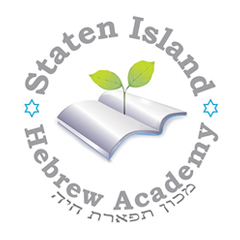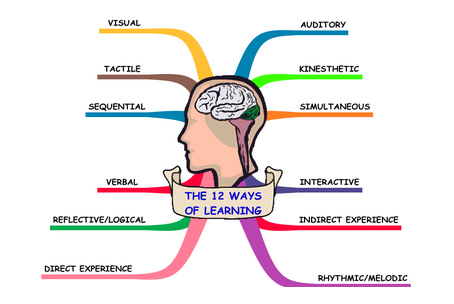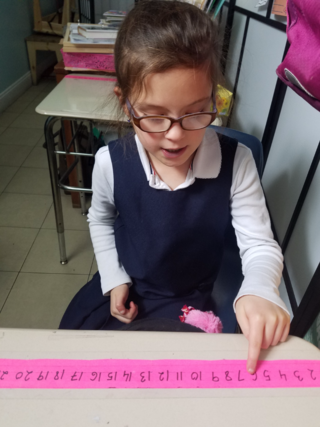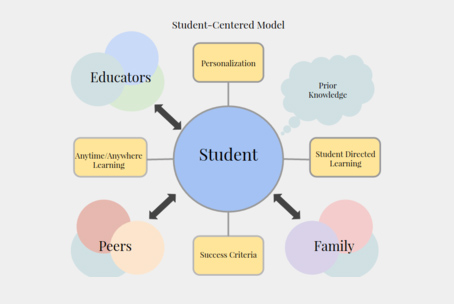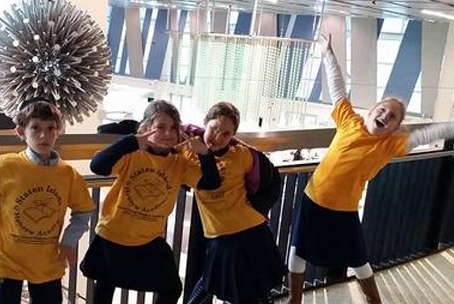NACHAS PROGRAM @ SIHA
Strive to Create a Supportive Educational Climate
Nachas@SIHA
is revolutionizing the education of special needs children from Jewish families. Our mission is to offer a well-defined, differentiated and interdisciplinary teaching model that recognizes the importance of each individual child.
We strive to create a supportive educational climate with diversified instruction. Each child’s student-centered curriculum consists of a combined self-contained and inclusion-based instruction. We aim to promote an atmosphere of belonging, success, meaning, and fun. Our certified special education teachers and caring professionals are devoted to the academic, social, and emotional development of each student.
The Nachas Program offers programs and services for students from Kindergarten through the 8th Grade with language based learning disabilities and perform optimally in a combined self-contained and inclusion based classroom. Only students whose behaviors are managed and appropriate for a classroom setting are accepted into the Nachas Program.
We employ a variety of methodologies and strategies for students who may experience challenges in the following areas:
- Auditory Processing
- Expressive Language
- Receptive Language
- Reading
- Executive Functioning
Educational Model
Our class size consists of a maximum of 8 students within the self-contained program and no more than 4 students within the inclusion program inside a general education setting of 15 students. We aim to achieve a low student to teacher ratio of 8:1:1 in a self-contained setting and 4:1:1 within an inclusion setting. There is a special education certified teacher within both classroom settings. This affords our students the attention necessary to remediate their specific challenges.
Our skill-based instruction utilizes a multi-sensory approach, incorporating Applied Behavior Analysis (ABA) strategies to support skill acquisition, behavior management, and social development. Through the use of technology, as well as visual, auditory, and tactile strategies, students benefit from the modality that best fits their unique learning styles. Differentiated instruction, combined with ABA principles such as reinforcement and task analysis, allows us to meet the needs of every child through individualized, student-centered education. Students are placed into fluid learning groups based on their needs, ensuring targeted instruction and meaningful progress.
Our highly trained staff includes:
- Instructors with Master’s Degrees in Special Education
- Associates or Assistants working towards a BA or an MA in Special Education
- Speech/Language Pathologist
- Learning Specialist/Consultant with a Doctorate in Exceptional Childhood Education
- Reading Specialist/Orton Gillingham Trained and Experienced
- Trained and Experienced Singapore Math Instructor
- Literacy Specialist/Consultant
- Occupational Therapist
- School Social Worker
- ABA Certified Staff
Social Integration with Inclusion
Our inclusion program allows for fluid movement of students between small self-contained classes and larger mainstream opportunities. Our students are partnered with a corresponding mainstream class for all non-academic and specialty subjects or activities. These include, but are not limited to, morning prayer, recess, lunch, art, music, drama, gym, assemblies, and field trips.
Academic Mainstream Process
Academic mainstream opportunities are available based on standardized criteria in subject areas. Students are monitored on an ongoing basis to assess progress via diagnostic, formative, and summative assessments. Based upon these assessments, some students can enter mainstream classes via inclusion. Once appropriate progress is made within the inclusion setting, both academically and socially, students can proceed within that given subject area to a regular education classroom in its entirety.
Curriculum Development
To meet the specific needs of our students, an individual curriculum is created. Secular and Judaic staff collaborate with our curriculum directors, consultants, and specialists to create a curriculum unique to each child’s learning style and ability. Applied Behavior Analysis (ABA) strategies are integrated into instruction to provide structured, data-driven approaches that support individualized learning. Curriculum personnel are responsible for developing specific curricula to meet the ever-changing needs of students in all areas, including language development, social skills training, and life skills training.
Students with disabilities must have opportunities to benefit from high-quality instruction and reach the same learning standards as all students. Under federal and state law, it is a fundamental right of students with disabilities to not only be taught the same content (the general education curriculum) as other students but also to be provided with appropriate supports (including accommodations and scaffolding) and services based on their individual needs. This ensures they can gain knowledge, develop skills, and demonstrate their learning effectively.
Each student’s individualized education program (IEP) must be developed in consideration of the state learning standards and should provide information for teachers to effectively implement supports and services that address the student’s unique learning needs. These supports directly impact the student’s ability to participate and progress in the general education curriculum.
In addition to supports and services, special education must include specially designed instruction, which involves adapting content, methodology, or delivery of instruction to meet the unique needs of each student. ABA techniques, such as reinforcement systems, task analysis, and data collection, are used to guide instruction and measure progress. By incorporating these strategies, teachers can facilitate student access to the general education curriculum, ensuring they meet learning standards applicable to all students.
Nachas students follow the SIHA general education curriculum.
